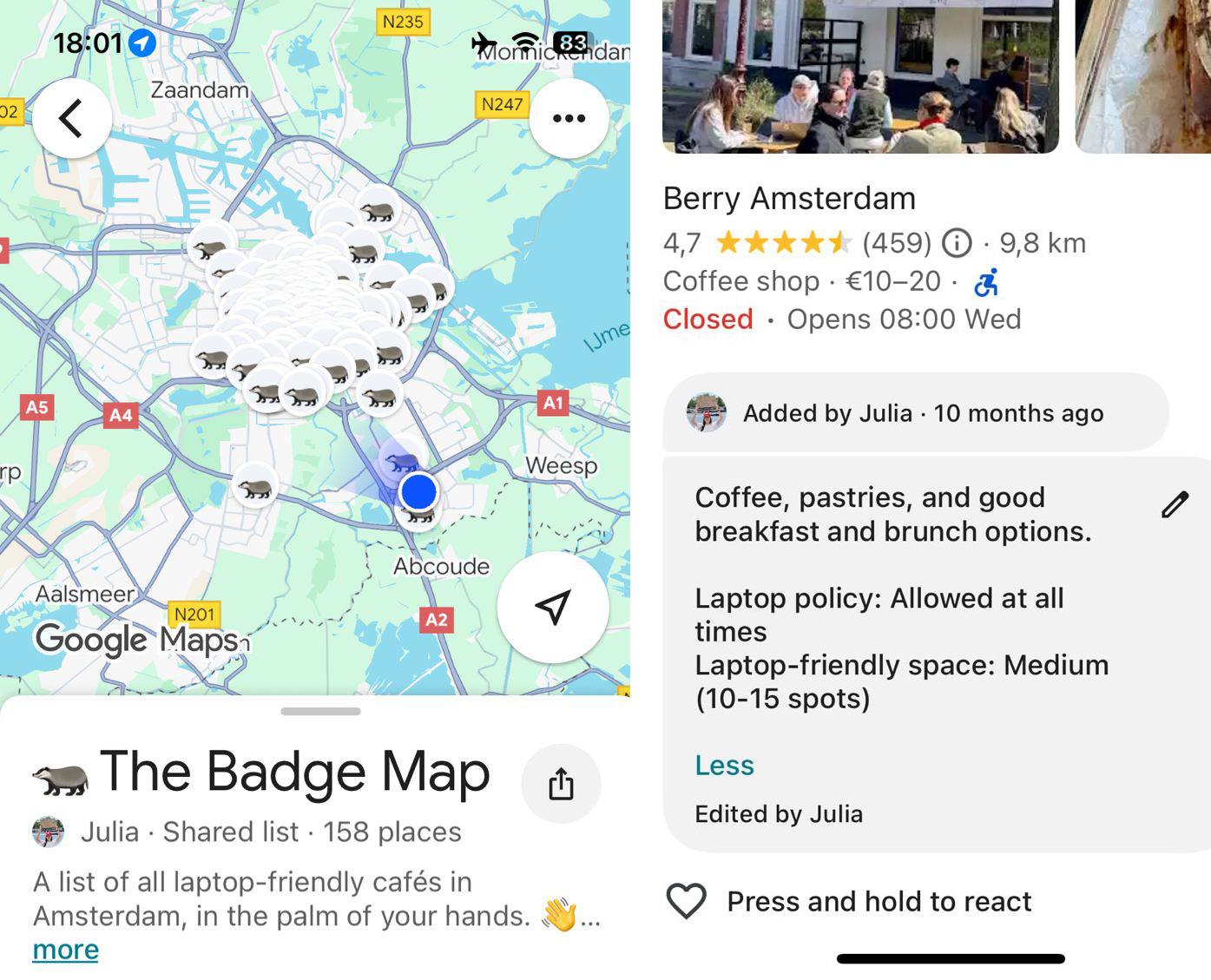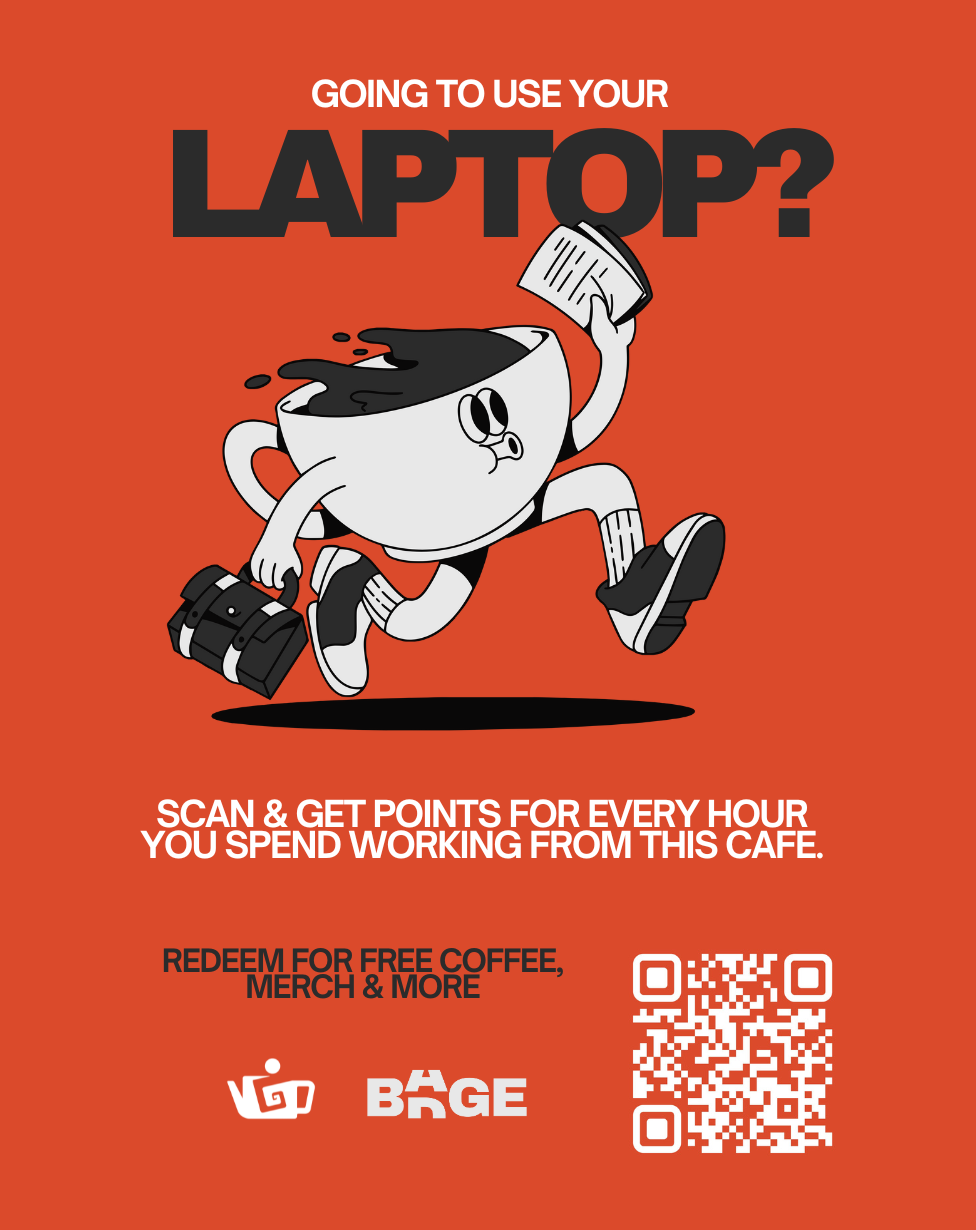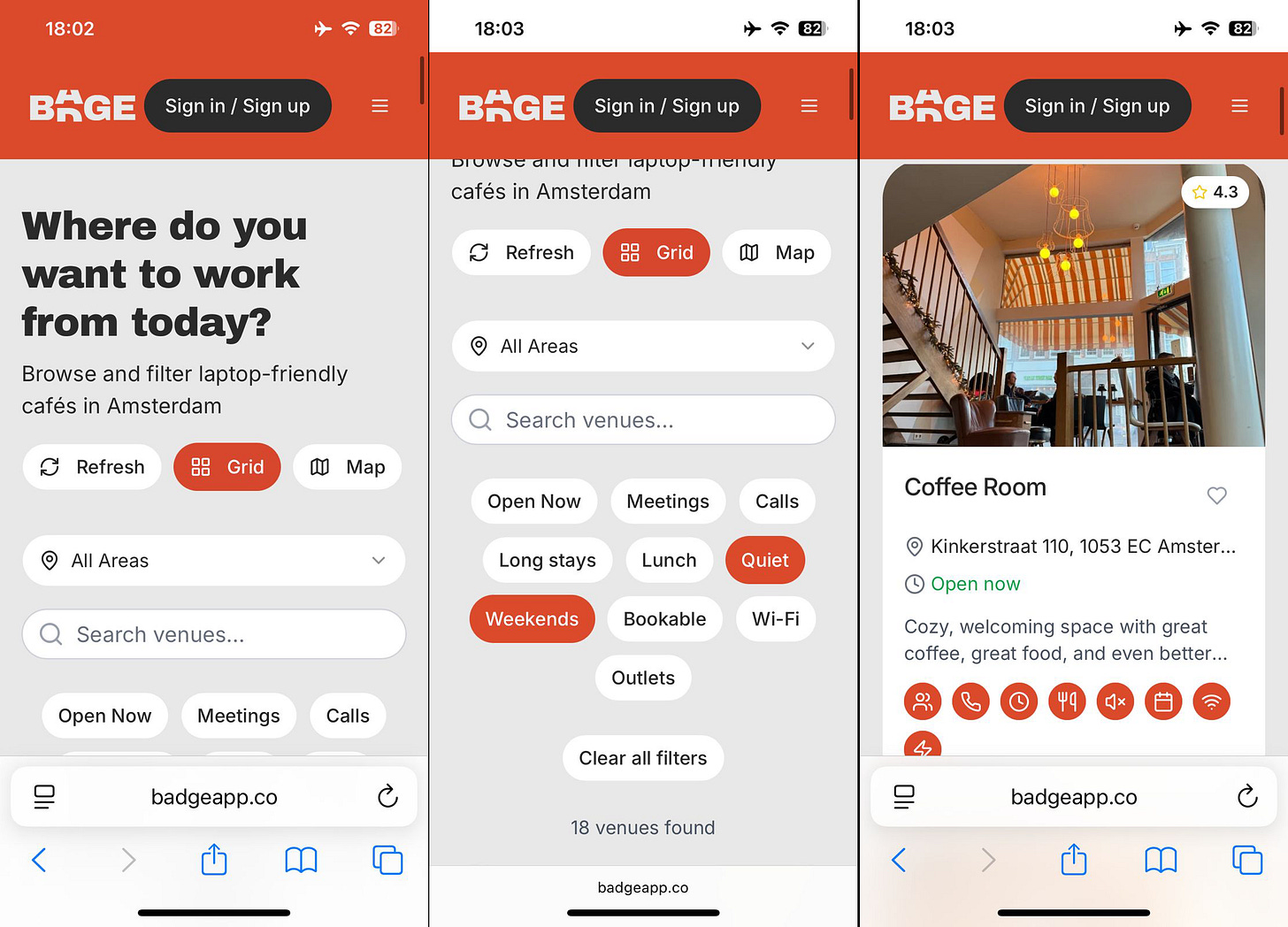Your sales pitch might be holding back your growth
How this founder changed one thing to unlock traction
Julia Vidal, co-founder of Badge, began with a simple problem: remote workers often roam the city searching for a workplace that won’t shoo them away.
As coffee shops and cafés are increasingly adopting no-laptop policies, she envisioned a startup.
What if partnered cafés allowed the reservation of a laptop spot, but just with a minimum spend, so everybody is happy? Basically, AirBnB, for café-based workspaces with proper WiFi.
Quick prototype validates demand on the consumer side
To test whether more people shared that pain, she made a simple prototype using a Google Maps layer with hand-curated laptop-friendly places.

Just some icons, but quite rapidly, people kept using the map without much advertising. She tells me on the phone: “I was actually a bit surprised and still am, we are still getting visits on that thing”.
Disappointing traction on the café side
She knew most tables at restaurants or cafés were empty after the lunch peak. She imagined a win-win. Backed by the promising prototype data, she marched into nearly fifty cafés, with a simple pitch:
“Let me fill your empty tables after lunch and boost your revenue.”
Yet owner after owner shook their heads or offered vague maybes. After months of pulling, she managed to convert only two cafés. Over that period, her morale visibly dropped a little, as I recall in one of my talks with her.
The real pain: frugal campers
But, later, she explained that one mentoring call changed everything. I do what I usually do: ask a lot of questions. At some point, she realised that she couldn’t really answer in great detail what problems and jobs the café-owners faced.
So she went back out, this time to listen rather than sell. Conversation after conversation surfaced the same irritant: patrons who camped for five hours on a single cappuccino.
Owners didn’t need more traffic; they required a graceful way to make the traffic they already had spend a little more.
The new pitch unlocked traction
The insight was electric. Without touching a line of code, she rewrote her sales pitch. Now, instead of promising extra customers and revenue optimisation, she promised relief from table squatters. A slight but powerful reframe.
Badge would place a discreet flyer with a QR code: “Planning to stay and work? Great! A minimum spend of €12 every three hours keeps the Wi‑Fi flowing.” Staff could simply point to the flyer—no awkward confrontations, no hard feelings.
That single narrative flip unlocked the doors that statistics and logic could not. Café owners started signing up, one after another, delighted that someone had finally addressed their real pain point.
Remote workers will get reliable desks; baristas got to skip the uncomfortable nudges; owners watched receipts rise naturally, without ever having to say the word “revenue.”
The product never changed. Only the story did—and in that shift from “We bring you more customers” to “We ease your biggest headache”.
Now, Badge is conquering Amsterdam borough by borough. To avoid premature scaling, first nail product-market fit in one neighbourhood (West). Want to try? Visit them here.
Extra credit: Badge’s revenue model
Badge generates value in two ways: getting customers to the cafes, and making sure they spend enough. They capture some of that revenue on a commission basis.
The laptop workers using Badge pledge a minimum spend. Badge gets a commission of that minimum spend. Cafe owners get more people and revenue, so they are happy to pay that.
In the current experiment, this revenue model is not in operation yet, but will be tested soon.
🔥 Jeroen’s Hot Take 🔥
There’s an underlying principle. Let’s uncover that together. If you are a patron 😏.





